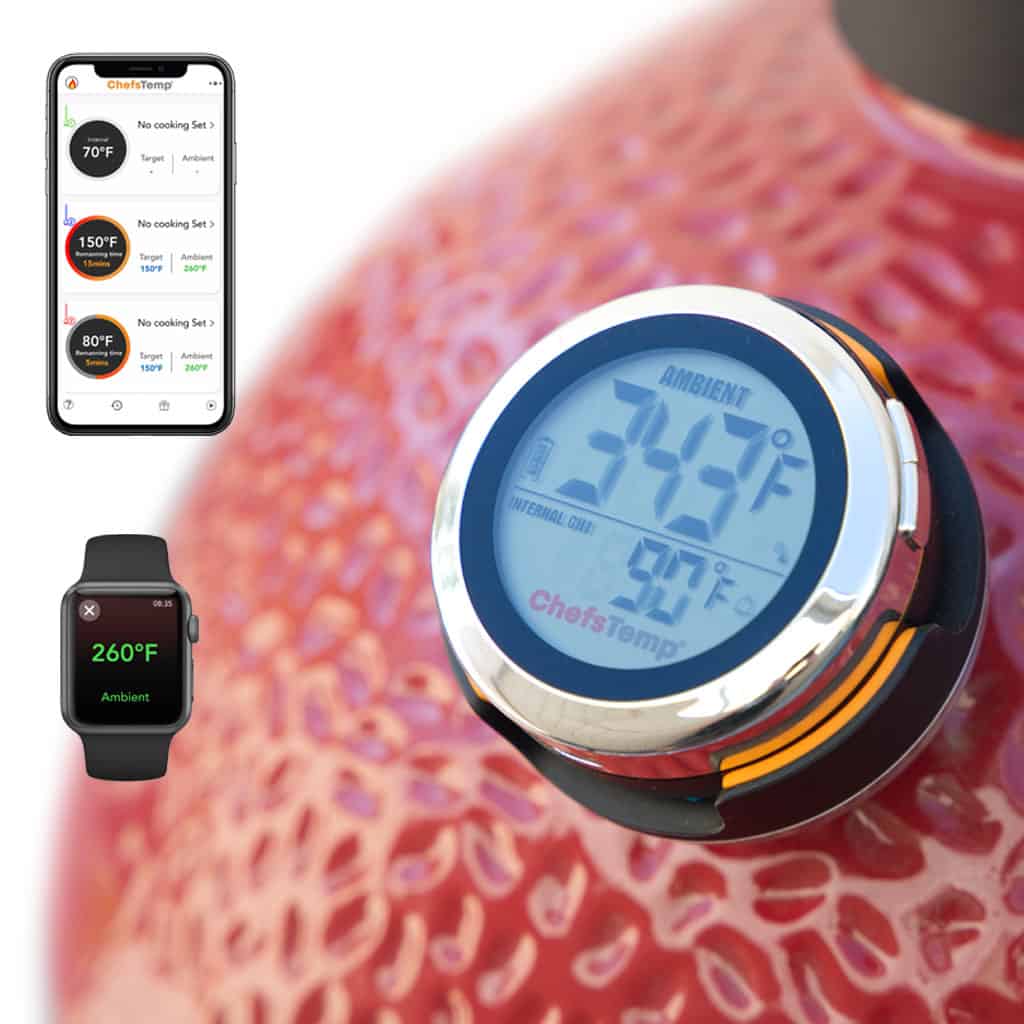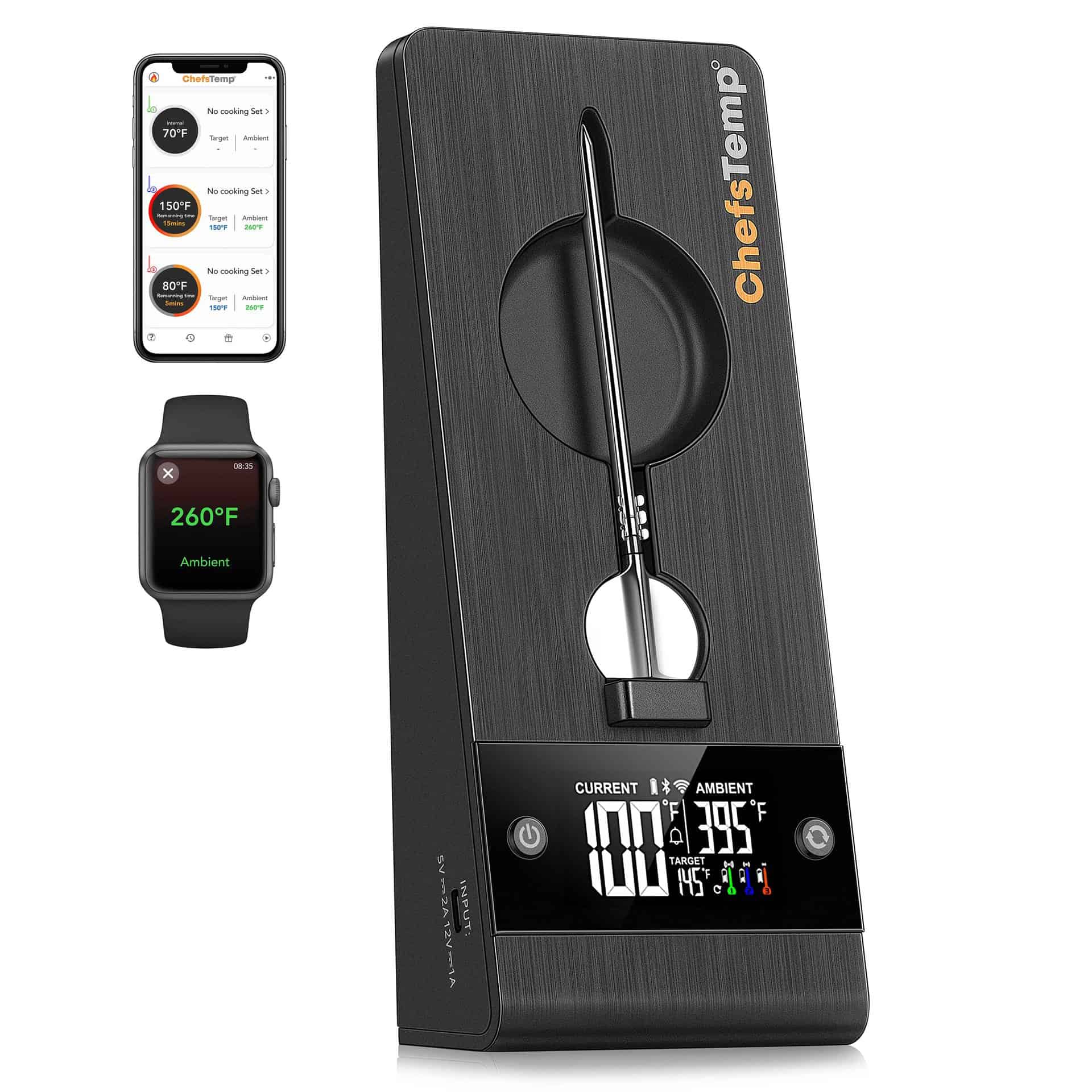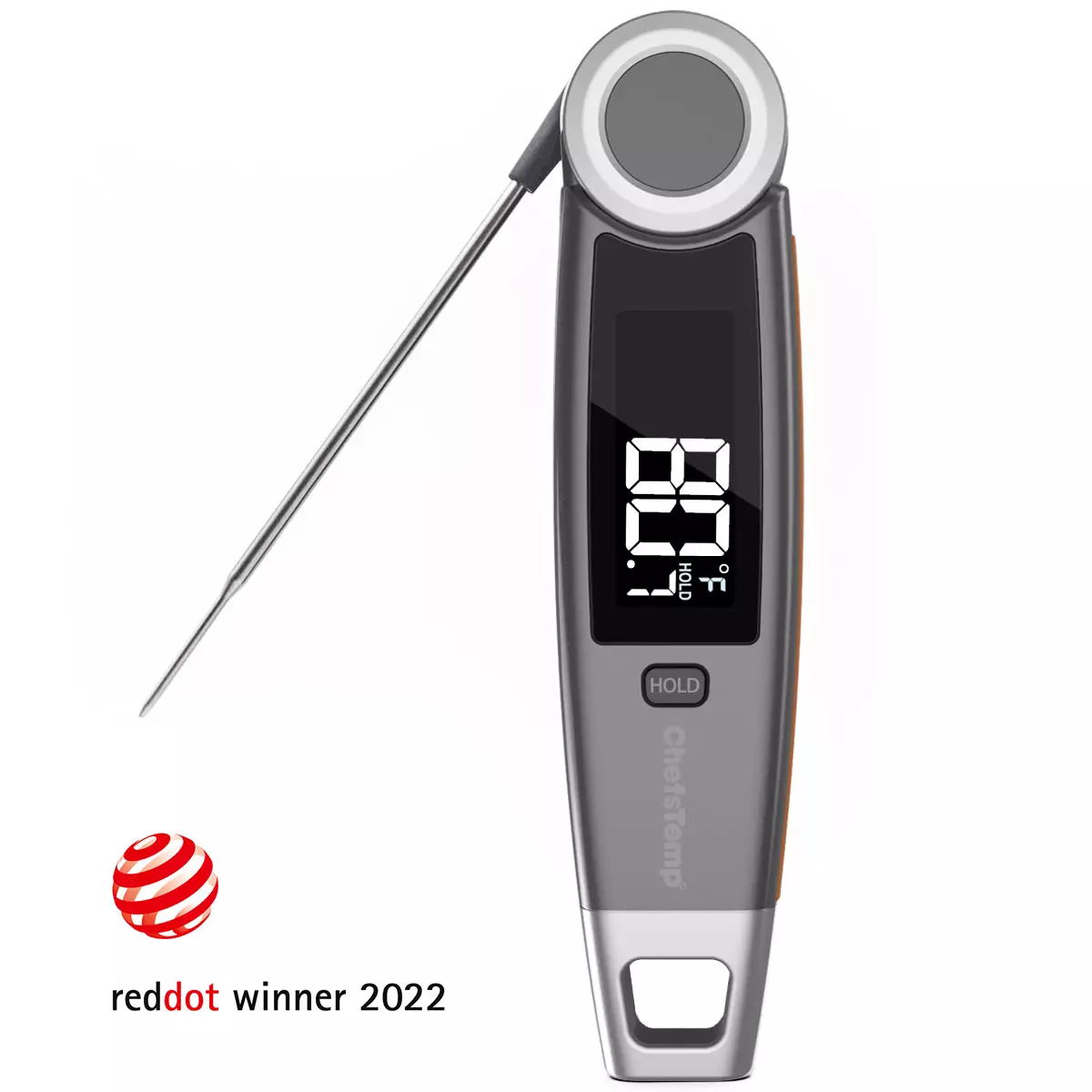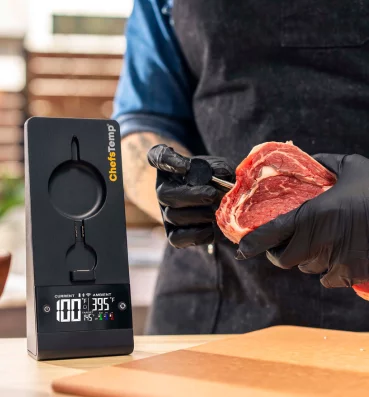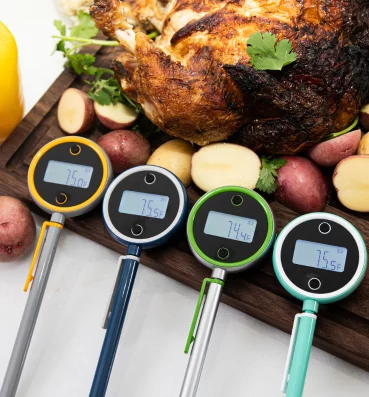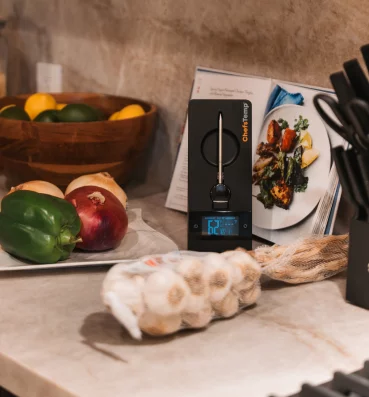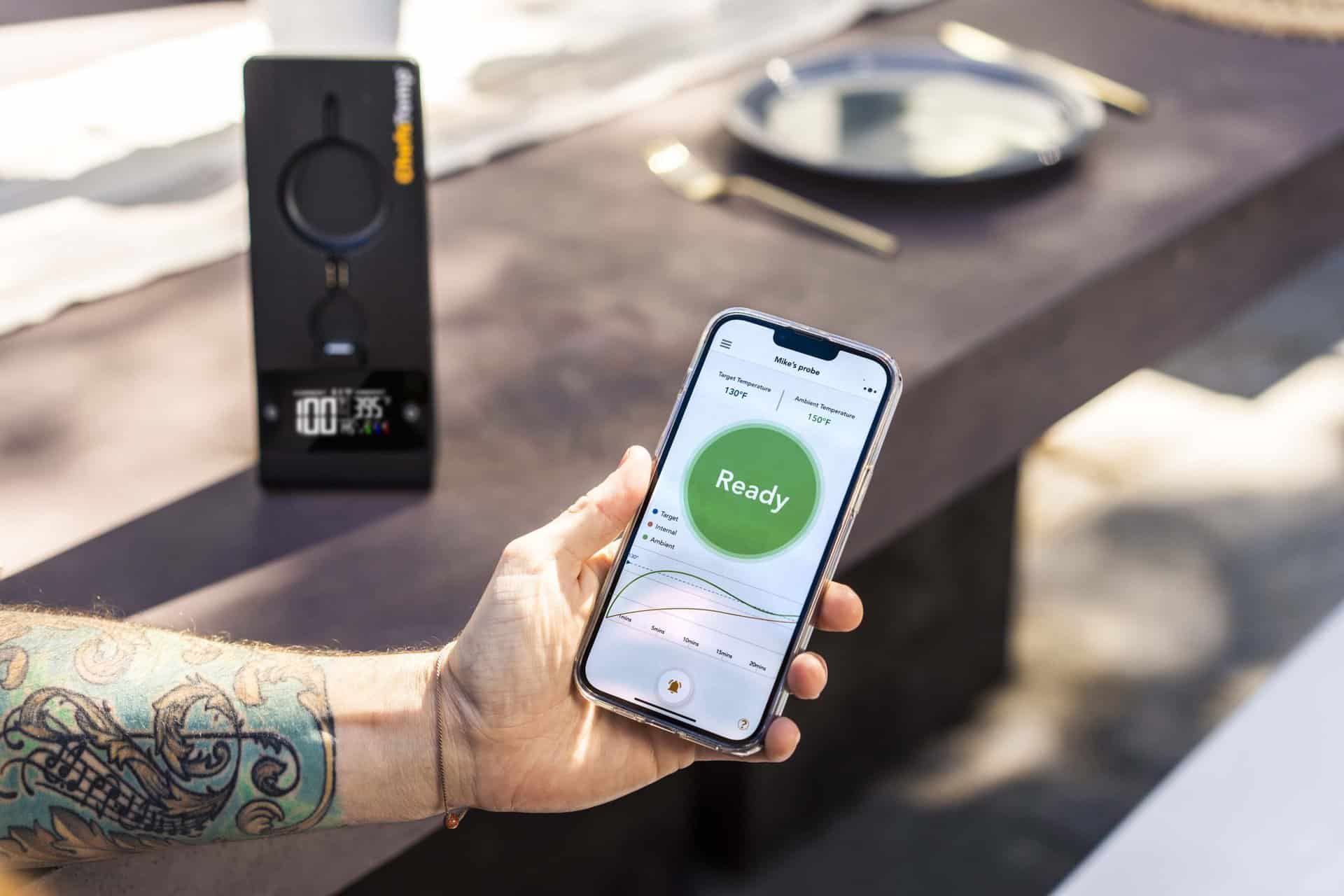
How often should you replace a thermometer?
A digital food thermometer stands as an indispensable tool in any kitchen, ensuring your meals are cooked to perfection and safe for consumption. From testing the doneness of meats to checking the temperature of liquids, this device plays a crucial role in culinary precision. However, like any tool, its accuracy and reliability can diminish over time. Hence, the question arises: How often should you replace a digital food thermometer?
Table of Contents
Understanding the Lifespan of Thermometers
Even though they are quite helpful, digital food thermometers can break. Several variables affect how long they live, including:
- Use Frequency: A thermometer may degrade more quickly the more often you use it.
- Brand and Quality: Because they are made with superior materials and craftsmanship, thermometers of higher quality from respected companies typically last longer.
- Upkeep and Care: A thermometer’s lifespan can be increased with proper maintenance, such as routine calibration and safe storage.
Signs It’s Time for a Replacement
Digital food thermometers can deteriorate even with appropriate care. The following indications suggest that it could be time for a new one:
- Unreliable Readings: It’s a warning sign if your thermometer begins to give unreliable or inconsistent readings.
- Slow Response Time: If the thermometer responds slowly or takes a while to show the temperature, it may be malfunctioning.
- Physical Damage: Wear, cracks, or damage to the probe or display are all obvious symptoms that it should be replaced.
Recommendations for Replacement Intervals
Although there isn’t a universal solution, the following are some basic recommendations for changing digital food thermometers:
Frequent Calibration:
Follow the manufacturer’s recommendations for regular calibration. For accuracy to be maintained, some thermometers may require recalibration every few months.
Every one to two years:
Even with careful care and calibration, think about replacing your digital food thermometer digital every one to two years. This timeline lessens the possibility of accuracy problems.
Extending the Lifespan of Your Thermometer
To extend your digital food thermometer’s lifespan as much as possible:
- Observe the manufacturer’s instructions: Follow the usage, cleaning, and calibration recommendations provided by the manufacturer.
- Keep Safe: Keep your thermometer out of the rain and very hot or cold by placing it in a protective case or sleeve.
- Prevent Dropping and Mishandling: Take good care of your thermometer to shield it from harm.
How Long Do Button Batteries Last?
Button batteries typically surprise people with their lengthy lifespan despite their small size. These little powerhouses have an astonishingly lengthy lifespan! Button battery life is contingent on a number of elements, including as its chemistry, how it is used, and how it is stored.
The majority of button batteries, including those composed of lithium, silver oxide, or alkaline chemistry, are intended to deliver a steady and reliable power source for a considerable amount of time. These kind of batteries have a long lifespan—many years—in low-drain devices such as wristwatches, calculators, and small electronic devices.
For example, lithium coin cells are renowned for having an exceptionally long shelf life. They are the perfect option for gadgets that need continuous power sources, such remote controls, key fobs, and tiny medical equipment like glucose meters, as they can hold their charge for up to ten years or more.
Long-lasting silver oxide batteries are also frequently seen in watches and other small electrical gadgets. These batteries have a low self-discharge rate and a constant voltage output, which means they can power devices for several years before needing replacement.
Alkaline button batteries, which are used in some remote controls and little toys, have a good lifespan of a few years, depending on use.
It’s important to remember, though, that a button battery’s real life might vary depending on a number of factors, including how often the gadget is used, how much power it needs, and environmental conditions like humidity and temperature.
Even though button batteries have a long lifespan, it’s important to replace them as soon as they start to show signs of weakening or when gadgets start to malfunction. Monitoring button-cell devices on a regular basis helps to prevent problems stemming from low battery life and guarantees continuous operation.
Are Digital Thermometers Accurate?
Indeed, digital thermometers are renowned for giving exact temperature readings with accuracy and dependability. Comparing these contemporary gadgets to their mercury counterparts, they have undergone substantial evolution and now provide fast and reliable readings.
To measure temperature with extreme precision, digital thermometers make use of sophisticated sensor technology, frequently using thermistors or infrared sensors. These sensors have the ability to quickly detect temperature changes and translate them into electrical signals that are processed and shown on the digital screen of the gadget.
A digital thermometer food has the advantage of providing readings fast—typically in a matter of seconds. Their quick reaction time adds to their accuracy by enabling customers to get temperature readings with the least amount of waiting.
In addition, a lot of digital thermometers have features like calibration options that guarantee the thermometer’s accuracy over time. Users can calibrate the thermometer to ensure consistent and accurate temperature readings by making necessary adjustments.
The adaptability of digital thermometers is another benefit. There are several varieties available, such as oral, rectal, ear, and infrared devices, each intended for a particular use. For example, non-contact temperature measurements are provided by infrared thermometers, which makes them appropriate for surface temperature checks that do not require physical touch.
Digital thermometers’ capacity to record past readings improves accuracy even more and enables users to analyze temperature patterns over time, which is useful for keeping an eye on health issues or guaranteeing the safety of food.
What is the Best Thermometer to Buy Right Now?
When it comes to accuracy, reliability, and ease of use in the realm of digital food thermometers, one standout option rises above the rest: the ChefsTemp digital food thermometer.
The ChefsTemp digital food thermometer is a culinary game-changer renowned for its precision and user-friendly design. This thermometer excels in providing quick and accurate temperature readings, making it an indispensable tool for both professional chefs and home cooks alike.
Don’t wait! Get your ChefsTemp digital food thermometer today and elevate your cooking experience.
Discover Other ChefsTemp Products
Discover more recipes and learn kitchen tricks by joining our cooking family on Facebook.
You may also like:
